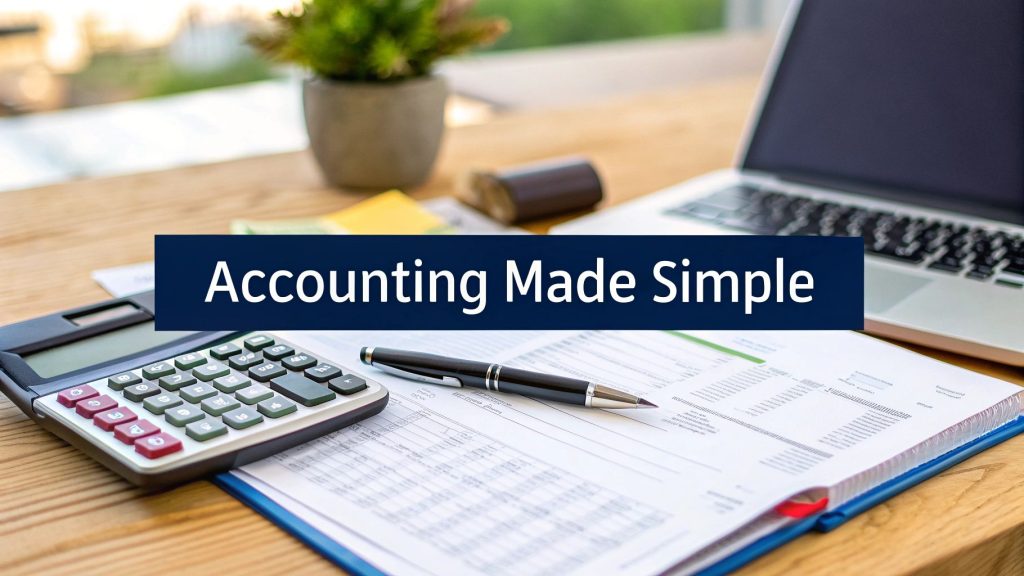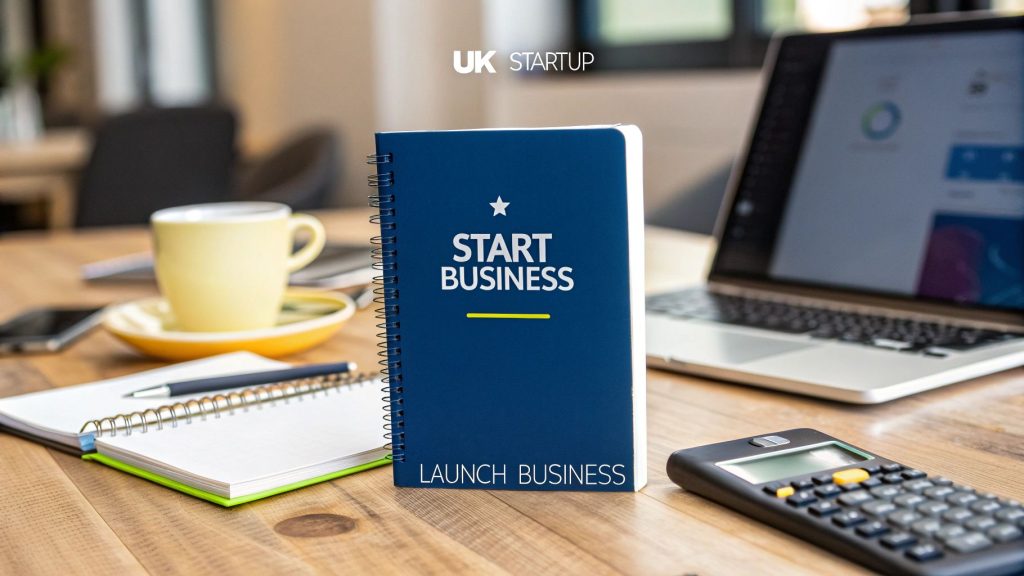High Street vs Digital Business Banking
High Street vs Digital Business Banking – Starting and running a business is challenging enough without having to second-guess your choice of bank. But your business bank account is often the first real “foundation stone” of your enterprise: the place you send your client payments, pay your suppliers, manage your cash flow and build a financial footprint. In the UK today that means choosing between “traditional high-street banks” and “digital banks / challenger banks”. Each has its own pros and cons. This article explores them in detail — tailored for new and start-up businesses — and gives you links and examples to help you decide.
Why the choice matters
Before diving into the details, it’s worth understanding why your banking choice matters so much for a start-up or new business:
-
If you are a limited company, you legally must have a dedicated business bank account (not just your personal account). Money.co.uk+1
-
Your bank account will affect your overheads (monthly fees, transaction costs), your convenience (online, branch access, ease of banking) and your ability to scale (credit, loans, international payments).
-
Your choice now may limit or enable your future choices: a business that grows quickly may find its first bank account becomes a bottleneck. As one guide notes: “Think about where your business is heading, not just where it is now.” ANNA Money
-
With many of the older banks reducing branch presence and increasing digital-services orientation, you should consider whether you will need branch / cash deposit facilities now or later. Financial Times+1
With that in mind, let’s compare the two broad categories: high street (traditional) banks and digital (online / challenger) banks.

What counts as a “high-street bank” and what as a “digital bank”?
High Street / Traditional Banks
These are the large, established banks with broad branch networks, many physical offices, full range of services (loans, overdrafts, merchant services, etc). Examples in the UK include:
-
HSBC UK — see their Small Business Banking account. HSBC Business Banking+1
-
Barclays Bank PLC — see their business banking accounts. Barclays
-
Lloyds Bank Plc — note their business account offer. Lloyds Bank
-
NatWest — start-up business account product. NatWest
Digital / Challenger / Online-Only Banks
These are banks or bank-like platforms that operate primarily or entirely online (via apps/web), often with fewer or no branches, often lighter on fees for basic services, and focussed on digital experience and agility. Examples:
-
Starling Bank — digital business account with no monthly fee. Starling Bank+1
-
Monzo Bank Ltd — online business banking offering. Monzo
-
Tide Platform Services Ltd — digital business account provider. Tide Business+1
-
Allica Bank — digital bank especially aimed at business. Allica Bank+1
Both models serve legitimate business needs; the trick is picking the one best matched to your business today and your likely progression tomorrow.
Pros & Cons – High Street Banks vs Digital Banks
Let’s compare typical advantages and disadvantages of each type, with a view for new / start-up businesses.
High Street Banks: Pros
-
Full service breadth – Many traditional banks offer accounts plus overdrafts, business loans, merchant services, branch support, cash / cheque handling, etc. For example, HSBC’s small business banking includes borrowing up to certain amounts. HSBC Business Banking+1
-
Branch network & face-to-face support – If you value being able to walk into a branch, talk to someone in person, make cash or cheque deposits easily, a high street bank can provide that.
-
Credibility and reputation – Small suppliers, investors or customers may feel more comfortable with a ‘big bank’ account.
-
Integration with other business finance services – Many traditional banks have well-established systems for business banking, accounting integrations, advice, and even international trade finance.
-
Established stability – The long history and regulated status of traditional banks may give a sense of security.
High Street Banks: Cons
-
Fees & charges – Many business accounts from traditional banks carry monthly fees, transaction costs, and may penalise smaller businesses. For example, Lloyds charges a monthly fee after the first year: “No account fee for 12 months … then £8.50 each month”. Lloyds Bank
-
Time and bureaucracy – Because they are large organisations, account opening, switching, or getting loan approval may take more time.
-
Less agility / fewer modern-first features – Some high street banks lag challenger banks in app usability, integration with modern accounting software, real-time notifications, etc.
-
Branch closures – Even high street banks are reducing branch networks, which may limit in-person services or local presence. Financial Times+1
-
Less competitive for small/very new businesses – The smallest businesses may find higher minimums, fewer free transactions or stricter eligibility.
Digital Banks: Pros
-
Low or no monthly fees – Many challenger business accounts offer free or very low monthly costs. Example: Starling’s business account: “£0 a month”. Starling Bank+1
-
Speed of setup and ease of use – Digital banks often allow almost immediate account opening via app, with streamlined processes. For example Monzo says you can apply and ~90% are opened same day. Monzo
-
Modern tools and integrations – Many offer built-in accounting integrations (Xero, QuickBooks, etc), real-time notifications, mobile app centric UX, and features like expense cards, sub-accounts, analytics. Leatherback Ltd+1
-
Suitable for micro-businesses / freelancers – If you have minimal cash handling, mostly online payments and want straightforward, low-cost banking then digital can be very convenient.
-
International / multi-currency options (in some cases) – Some digital providers cater well to global payments or multiple currencies (important for trading overseas). Wise+1
Digital Banks: Cons
-
Limited in-person / cash handling services – With few or no branches, depositing cash or cheques may be harder, and face-to-face advice may be minimal. For businesses needing physical presence or cash intake this is a limitation.
-
Growth / credit limits – Some digital banks may not offer the full range of business loans, overdrafts or high-volume merchant services that larger banks do. Some have restrictions for rapidly expanding companies. Leatherback Ltd+1
-
Over-reliance on tech – If your operations are disrupted (app outage, network issues) you may feel more exposed.
-
Potential for hidden costs or later upgrade fees – Some low-fee digital banks maybe fine for now, but if you grow you may find you outgrow them, or move into paid tiers.
-
Cash deposit and cheque limitations – Many challengers either charge for cash deposits or restrict them. For example, one review notes a digital bank charges for cash deposit via Post Office. Leatherback Ltd+1
| Bank / Provider | Type | Monthly Fee | Free Period | Account Opening Time | Cash / Cheque Deposits | Accounting Integration | Best For |
|---|---|---|---|---|---|---|---|
| Starling Bank | Digital Bank | £0 /month (Free) | N/A | Same day via app | Yes – via Post Office (£3 per deposit) | Xero, QuickBooks, FreeAgent | Online-first small businesses, sole traders |
| Monzo Business | Digital Bank | Free (Lite) / £5 Pro plan | N/A | Minutes (90% same day) | Via PayPoint (£1 per deposit) | Xero, FreeAgent | Freelancers, micro-businesses |
| Tide Business | Digital Fintech | Free (Basic) / £9.99 – £49.99 Premium | N/A | Under 10 minutes online | Via Post Office (fees vary) | Xero, QuickBooks, Sage | Start-ups wanting instant setup |
| HSBC UK | High-Street Bank | £8 – £10.50 / month | 12 months free for new start-ups | 1–3 days (online / in-branch) | Yes – all branches nationwide | QuickBooks, Xero, Sage | Growing SMEs, limited companies |
| Barclays Business | High-Street Bank | £8 / month (after free period) | 12 months free for start-ups | 1–3 days (online / branch) | Yes – nationwide branches | Xero, QuickBooks, FreeAgent | Established or scaling SMEs |
What Should a Start-Up Business Look For?
When you’re just starting out, your priorities may differ from an established business. Below are key questions and features to consider:
-
Fees & pricing:
-
Monthly account fee (free or paid)
-
Transaction costs (inbound/outbound transfers, UK and international)
-
Cash deposit / cheque deposit fees
-
Foreign currency / international payment fees
-
-
Eligibility & speed of setup:
-
Can you apply easily as a new business, sole trader or limited company?
-
How quickly is the account opened?
-
What documentation is needed?
Example: Money.co.uk notes that for a limited company you’ll need personal ID + company registration. Money.co.uk
-
-
Features & integrations:
-
Mobile app, ease of use
-
Accounting software integration (Xero, QuickBooks, etc)
-
Provision for multiple users/signatories
-
Expense management, sub-accounts, analytics
-
-
Services & growth support:
-
Does the bank offer overdrafts, business loans, credit facilities?
-
Does it support merchant services / card payments / POS terminals if needed?
-
International payments / multi-currency if you trade globally?
-
-
Branch / cash deposit / cheque handling:
-
Do you need to deposit cash or cheques regularly?
-
Do you value occasional face-to-face help or branch visits?
-
-
Reliability & reputation:
-
Is the provider a fully-licensed bank (FSCS protection £85k etc)?
-
How is its customer service and support?
-
Are there any limitations or common complaints?
-
-
Scalability:
-
If you grow from a sole trader to limited company, or you expand internationally, will the bank still serve you well?
-
One guide warns: “Some providers suited to small start-ups, while others built for scale.” ANNA Money
-
-
Switching & future-proofing:
-
Can you switch banks easily later?
-
Are your account details portable (e.g., via the Current Account Switch Guarantee)?
-
What happens if you outgrow this account—will you need to open another?
-
High Street Bank Highlights & Links (UK Business Banking)
Here are some of the established High Street bank offerings worth considering, especially for start-ups:
-
HSBC UK – Small Business Banking Account Link: HSBC Small Business Banking
Aimed at startups and small businesses. Key features: manage business banking, virtual assistant & live chat. HSBC Business Banking+1 -
Barclays – Business Banking Accounts Link: Barclays Business Banking
The bank offers account options including “12 months free digital banking” for start-ups. Barclays -
Lloyds Bank – Business Bank Accounts Link: Lloyds Business Bank
First-time business accounts: “No account fee for 12 months … then £8.50 each month”. Lloyds Bank -
NatWest – Start-Up Business Account Link: NatWest Start-Up Business Account
Designed for businesses trading less than one year with turnover under £1 m. NatWest
These are all solid options if you want the reassurance of a big bank, branch access, and full-service offerings. But they may not be the most cost-efficient or agile for every new business.
Digital Bank Highlights & Links (UK Business Banking)
Here are some top digital / challenger options. They are particularly worth considering if you’re a start-up with lean costs, mostly online operations, minimal cash handling.
-
Starling Bank – Business Account Link: Starling Bank Business Account
Key features: £0 a month, free UK payment charges (for basic plan), 24/7 UK support, quick app setup. Starling Bank+1 -
Monzo Business Banking Link: Monzo Business Banking
Fully regulated bank, apply in minutes, integrations with popular accounting software, good for sole traders or limited company directors. Monzo -
Tide – Business Current Account Link: Tide Business Account
Free UK business account online in minutes, no monthly fee (for base plan). Tide Business+1 -
Allica Bank – Business Focused Digital Bank Link: Allica Bank
Built for business, minimal fees, dedicated relationship manager, digital-first but full bank licence. Allica Bank+1
These digital banks are well suited to many start-ups. But you should check whether they meet your cash-deposit or branch-needs and whether they support your growth plans.
Which Should You Choose? Some Scenarios
To help make this practical, here are some typical business-scenarios and which bank type might suit better — though of course you should always match to your specific business.
Scenario A: “Solo trader / micro-business, low cost, online only”
If you’re just starting, trading from home, mostly online payments, few cash transactions, minimal overheads — then a digital bank is likely a strong fit. Lower fees, rapid setup, strong app-based control. For example Starling or Monzo might work well.
Scenario B: “Limited company, moderate growth ambition, some clients pay by cheque or cash, UK only”
You’ll value reliability, building credibility, maybe occasional branch visits, and future borrowing options. A high street bank may give you more room to grow, access to business loans, branch support, merchant services. For example HSBC, Barclays or Lloyds.
Scenario C: “Import/export business, multi-currency, international payments intensive”
Here you may want digital bank features such as multi-currency accounts, low FX fees, excellent app analytics. A digital bank with strong international focus is likely preferable. (Though some traditional banks also offer this, digital ones may be more cost-efficient.)
Scenario D: “Business expects rapid scale, steam-roller growth, maybe requiring major credit facilities or international operations”
In this case you might want to choose a bank that can grow with you — so consider whether your account provider supports large loans, advanced merchant services, branch or multiple-region support. A large high-street bank may be safer. At the same time you could pair with a digital bank for agility.
Scenario E: “Need lots of cash / cheque deposits or branch access”
If your business takes lots of cash from clients (eg. retail, hospitality) or you need regular branch visits, deposit via branch or get personal service — you’ll lean high street. Many digital banks are weaker on cash deposits.
Things to Watch / Red Flags
Here are some “gotchas” for start-ups when picking a business bank account:
-
Cash and cheque deposit costs or limitations — Particularly for digital banks. Some charge, some don’t allow easy cash deposit.
-
International payment fees & FX rates — If you trade overseas, check what the bank charges for foreign currency or cross-border transfers.
-
Eligibility restrictions — Some accounts may exclude certain types of business, require minimum turnover, or have limitations (e.g., only sole traders or limited companies).
-
What happens if you outgrow the account — If the bank account is great now but cannot scale, you may have to switch later (which is a pain).
-
Overdrafts / credit facilities — Many start-ups may rely on short-term borrowing; check whether your bank offers overdraft, loan, credit options.
-
Switching cost/time — If you start with one bank and switch, check how easy it is (for example via the Current Account Switch Guarantee) and what the costs/time will be. NerdWallet+1
-
Service quality — Even digital banks sometimes have complaints about customer service. One review of digital business banking warns “customer service has received mixed reviews”. Fondy IO+1
-
Protection & regulation — Ensure your provider is a fully-licensed bank so you get FSCS protection (UK deposit guarantee up to £85,000). Many digital challengers are full banks, but check. Monzo+1
My Suggested Approach for New/Start-Up Businesses
Here’s a suggested step-by-step approach you might follow:
-
Clarify your needs – Write down (or think through) what you absolutely need from your bank account:
-
Do you expect cash deposits / branch visits?
-
Do you trade internationally?
-
Will you need loans or overdrafts?
-
Do you want the lowest cost possible?
-
Do you want built-in accounting/expense tools?
-
Do you anticipate substantial growth (turnover, staff, complexity) in the next 12-24 months?
-
-
Short-list 2-3 providers – Choose one high street bank and one digital bank (if your needs allow) and compare the detail of their business account offerings (fees, eligibility, features). Use comparison guides such as Money.co.uk, NerdWallet etc. Money.co.uk+2NerdWallet+2
-
Examine the small print – For each:
-
Confirm monthly fee and what happens after any “free period”.
-
Confirm transaction limits, cash deposit charges, overseas payment fees.
-
Confirm eligibility (sole trader vs limited company, turnover thresholds).
-
Confirm whether the account supports your future needs (loans, multiple users, accounting integration).
-
-
Consider your growth path – If you’re likely to scale, pick a bank that you can grow with (or be prepared to switch later).
-
If you pick a digital bank now, check whether you will be comfortable later if you need more advanced services.
-
If you pick a high street bank now, check whether you’re comfortable paying more for features you may not yet need.
-
-
Open the account – Many digital banks allow mostly online opening (often minutes), while high street banks may require branch/appointment. For example, Monzo states “Apply in minutes… 90 % of business accounts are opened the same day”. Monzo
-
Review regularly – Your business needs will change. Make sure you review your banking arrangement at least annually: Are the fees still competitive? Are the features still sufficient? Do you need to switch?
High Street vs Digital Business Banking Final Thoughts
There is no one “best” bank for every start-up. The right choice depends heavily on you and your business model.
-
If you value ultra-low cost, ease of setup, app-based banking and expect to remain a lean micro-business, a digital bank is very strong.
-
If you anticipate growth, need branch/cash deposit support, want traditional credibility and full-service backing, a high-street bank is likely more suitable.
-
In some cases, you might even use both: one digital business account for everyday low-cost operations, and another account with a high street bank for overdraft/loan/credit access. But note this increases complexity and possibly fees.
In the end: review your business needs now, project your needs for 12-24 months ahead, compare providers carefully, and pick the account that gives you confidence and flexibility.
Setting up the right banking foundation now will give you one less thing to worry about as your business grows. Good luck with your venture!

















































